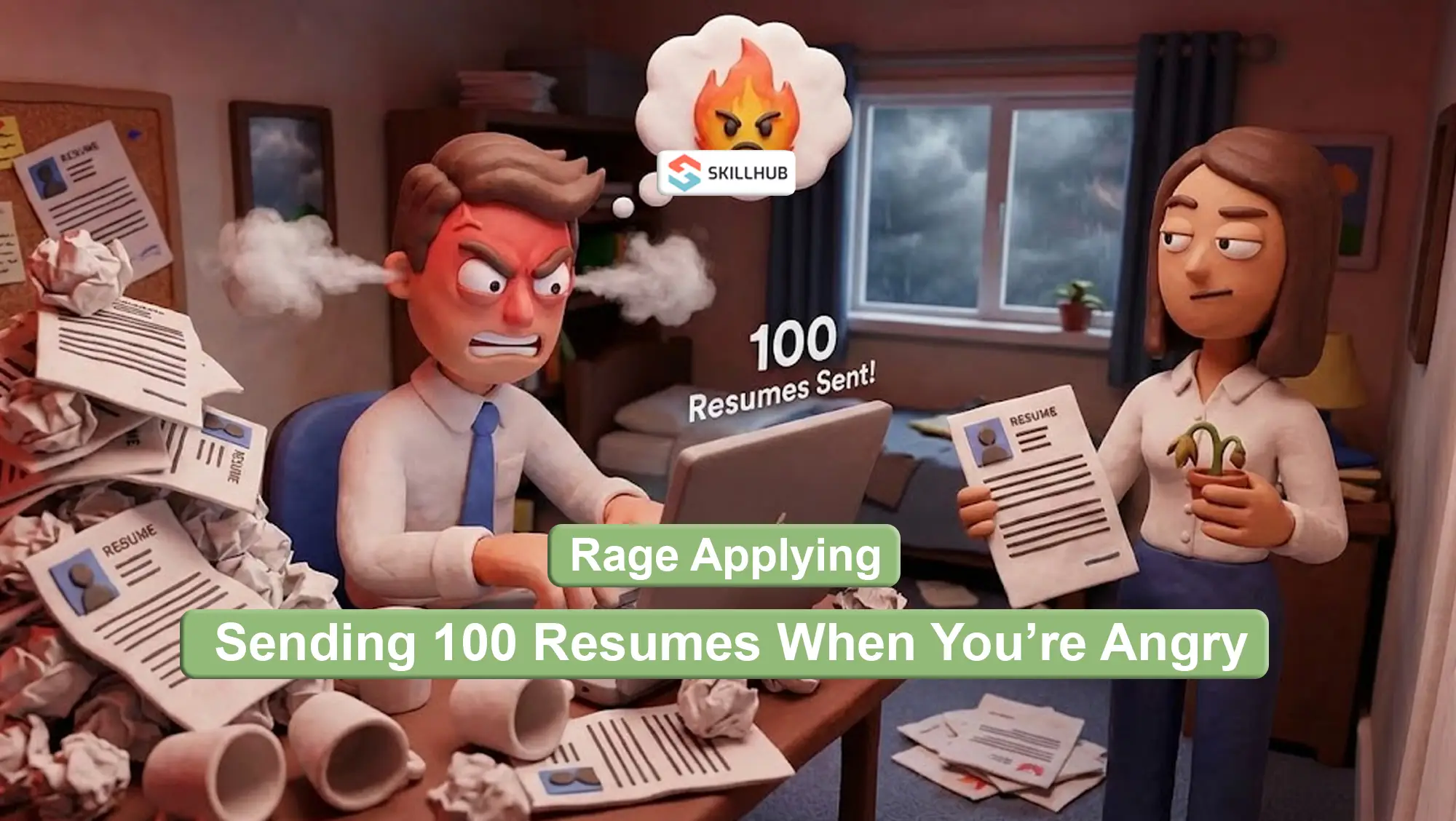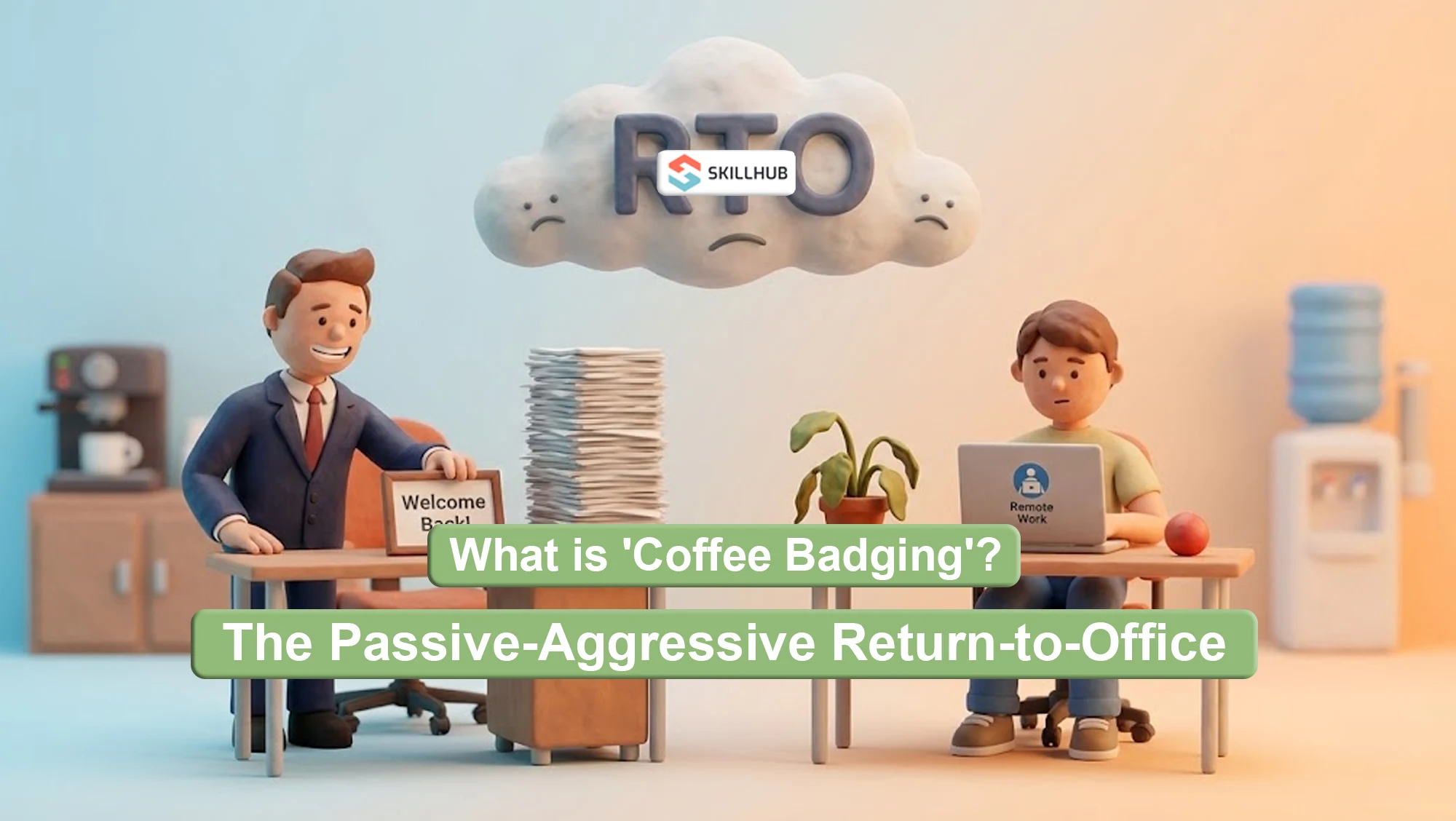When You're a Winner, Your Company Is a Loser
.png)
Many people try making a career working for a single company. They spend decades diligently working for the same employer and often in the same department. Our resume writers analyzed that this practice worked fine when there was more job security. With the current financial instability, holding the same job may be more devastating.
Of course, there’s no need to leave the organization if you are satisfied. But, after several years at the same job, it's better to test their place within the company structure. Staying at the same job for too long can damage your personal and professional progress. But, when is the right time to apply for a job? And what happens to your previous company once you move on? We asked these questions to Chelsea Jay - a prominent career coach and leadership development specialist. Here’s what she had to say.
5 Signs That It’s Time To Quit The Old Job
Chelsea: Deciding to leave a company is never easy, but I encourage professionals to always put their best interest ahead of any company they work for. When a professional says that they are thinking about leaving a company, I tell them that it is important that they make an informed and well thought out decision.
It’s important that professionals have the following questions answered (it will help them easily navigate the job search).
- What are the top five traits, services, or benefits I need from an employer?
- What are my non-negotiables?
- What do I want the average workday to consist of?
There are several things to consider before making up your mind. Usually, they concern professionals who have been doing the same job for 3-4 years. It’s prime time to send out applications if they meet the following criteria.
The Work Is No Longer Challenging
Chelsea: I advise professionals to sit down and reflect on what is going right at their company and what is going wrong. Asking the following questions will help provide clarity.
- What are my top five reasons for thinking about leaving the organization? Are any of the reasons negotiable?
- Have I made my needs known to the company? Are they willing to meet these needs?
- What are my current and future career goals? Can my Company search API help me reach them or is it truly time for a change?
- Am I ready for a career change? Or do I just need new challenges?
Think about when was the last time you did something challenging. When did you learn something new? If the answer is no, find an opening that improves problem-solving and critical thinking skills. Otherwise, your skillset will get dull as the years go by.
There’s No Room For Income Growth
A job is first a way of making a living. Have you tried to ask for a raise only to be shot down? Your employer rewarded everybody for a well-done job except you? If an employee answers yes on one or both questions, it's time to look for a new job. What’s the point of working if you don’t get paid?
Chelsea: You are the prize. It is important to remember that you are filled with irreplaceable talent, skills, and expertise that is needed in the workforce. Whenever you decide to leave a company, you are the one who will ultimately benefit.
“You are the prize.”
With the right qualifications, you can get hired by more prominent organizations. It's important to document your accomplishments in current and past places of employment. In some cases, hiring managers can get you an instant raise for these experiences.
The Job Makes You Tired
Chelsea: Throughout your career, you should always be your main focus. Not your company, coworkers, friends or family members… you!
Falling asleep on the job or doing it half-heartedly is one of the tell-tale signs of an unsatisfied worker. Others can include:
- Accomplishing less daily
- Postponing assignments for no reason
- Spending too much time on social media
This can be a sign of building stress and can quickly lead to severe burnout. Do not force yourself. Your mental and physical health is more important than your job. Start looking for alternatives immediately if you feel like your job has turned into a burden.
Chelsea: You’re always a winner when you make decisions that are best for you.
One day you won’t be able to put anything on the list of accomplishments. This usually means that you have nothing more to offer at the current position.
You Don’t Share the Company Goals
Job seekers often choose companies that share their goals and values. For example, programmers who want the new software product to succeed. Car mechanics want to see their autoshop thriving. If you’re just there to make a quick buck, it's better to find something you’re passionate about.
The Company Doesn’t Appreciate Your Skills
Chelsea: I always remind working professionals that we spend the majority of our time at work so it is important to feel fulfilled, respected, and appreciated while on the job.
There’s nothing worse than working for an ungrateful employer. You give them your time and hard work for no recognition. There are several signs that your company doesn’t use your full potential:
- Your boss doesn’t acknowledge your achievements
- Only coworkers get promoted
- Your role feels obsolete.
All are good reasons for starting to look for a new position. So, the current job doesn’t suit you, but what good will a new job bring?
Cover letters are crucial for landing a dream job that is why almost half of the job seekers (47%) write them. A lot of employers decline applications without them. That is why you should consider to check the cover letter examples for changing careers to help yourself out.
Perks Of Starting A New Position
An Increased Salary
One of the first things associated with a new job is the prospect of getting higher wages. Many employees feel stuck in a dead-end position with no opportunity for financial growth. With the right attitude and skillset employees can get great salary bonuses. Extra experience will make it easier for you to aim for high-paying jobs.
Chelsea: When you choose to move on, you move to the opportunity of gaining better pay, a workplace with better benefits, a better work environment, and more opportunities.
New Experience
Starting a new job makes you add new skills to the old ones. In the long run, it makes employees more competent and opens new growth opportunities. It's also an opportunity to learn something new by choosing a completely new position.
Expanding The Comfort Zone
Another perk of switching to a new employer is getting out of the comfort zone. Staying at the same job and talking only to coworkers limits the network outside the company. Exploring the world beyond the current workplace broadens your horizons.
Getting Better at Interviews
Chelsea: The job search and interview process is not the most exciting activity in the world and can be very time consuming, which is why it’s important to understand what you need in order to thrive and be happy at a new organization. Once you make it to the interview stage, do not be afraid to ask the questions that relate to your non-negotiables, needs, and career goals!
Preparing for the interviews has employees better understand their value. Pursuing new opportunities allows for building up market value. Each time you get stock of professional and personal skills, as well as the strengths that make you a good candidate.
Judging Employers Better
Putting yourself back on the market will make you better at evaluating potential employees. With time you’ll get better at assessing the state of the company. With practice, you’ll be able to determine if the work atmosphere is good and if the employer has anything to offer. This will save you from many dead-end jobs and thousands of wasted hours.
Feeling More Inspired
Working the same job for years often leads to employees feeling dull and mechanical. They no longer feel inspired or creative to get any job done. Switching to a new job may reignite the creative spark in your brain and make you inspired about going to work again. There’s no better way of doing it than by applying for a new job.
Getting A New Challenge
One of the most rewarding things about starting a new job is the ability to challenge yourself. Many people dream of having a mundane job. But, in reality, if you become too complacent or comfortable, you can develop too many bad habits. You can get stuck playing games or surfing the web until the clock runs out.
According to recent studies, employees have to devote a quarter of their time to challenging themselves. Starting a new job will make you more stimulated and on your toes. It’s an excellent way of keeping yourself sharp and challenged. While these things are good for the employee, what about the employer?
How Companies Suffer High Turnover Rates
The modern economy makes hiring and retaining good employees harder every day. It’s especially difficult for nonprofits and small businesses. They compete with large corporations to find the relevant person for the job. But, not everything is about offering a bigger salary. Nowadays benefits play a big part in improving retention levels.
Companies have to come up with things that fit the right person’s needs. It’s a great way of lowering turnover rates. But why should companies care about employee turnover and prevent it?
Why It Matters
Each year big chunks of employees willingly leave their positions. According to the Bureau of Labor Statistics, this is especially true for business, retail, and manufacturing. Strong turnover rates harm organizations in several ways.
Lower Morale
One of the first things to get hit every time someone leaves is the morale of the remaining employees. If the retention rates aren’t improved, more workers will follow suit. Some of the staff may feel like they’ve lost good colleagues and work friends. Recent studies show that a majority of workers believe that having friends at the workplace is a huge part of their experience.
Half of the employees stated that they were better connected to the organization when there was a best friend at work. When one of the employees leaves, others feel less committed to their place of employment.
Decreased Productivity
Another factor that’s tied to employee turnover is diminished productivity. That’s because there are fewer people to carry the workload. The remaining employees can find the extra work difficult. They often become stressed, which in turn damages their performance.
This soon translates to increased financial losses for the organization. Each year all US businesses lose $1.8 trillion due to productivity loss. This is according to data obtained by HubSpot analysts.
High Price Of Recruitment
One of the biggest problems posed by employee turnover is the cost of recruiting new staff members. Companies have to put time and money into training the replacements. The cost of this process varies from business to business. But, it's something all employers have to manage.
According to some studies, on average businesses spend 6-9 monthly salaries on training a new recruit. For example, a company will spend from $30,000 to $45,000 to train a person that makes $60,000 a year. Turnover rates vastly differ by roles and wages.
The Cost Of Employee Turnover
There are several things that contribute to the price of losing employees. First comes the cost of hiring a new employee, which includes advertising, screening, interviewing, and hiring. Next, comes the costs of onboarding the person, training, and managing them. In some cases, it takes several years for an employer to be as productive as the rest of the staff. This damages productivity.
Chelsea: Your company on the other hand loses because number one, they lose a valuable team member, but they also lose in time and resources. Recruiting a new hire is time consuming, expensive, and ends up utilizing internal resources (staff time) with finding someone to replace you. It is always in the company's best interest to do everything they can to keep you, but if they choose not to do so, it will ultimately be their loss.
There’s little to no doubt that new hires will make mistakes. It might also take them longer to complete their tasks and solve problems. Another important factor is the cost of training. It takes from 2 to 3 years and a large investment to train a single employee. Last but not least, this makes other people question why their colleague decided to leave.
There’s currently no real way of calculating the price of employee turnover. That’s because many organizations don’t track exit costs with these factors. Several departments have to work with each other to determine this price and how to best document it. In any case, there’s no scenario where the company benefits from losing employees.
Conclusion
In the end, employees have to do what is in their best interest. If they feel that their job is no longer fulfilling, doesn’t pay enough, and there’s no place for growth - it’s time to quit. Employers have to do everything in their power to keep any staff members as they can. Otherwise, they’ll soon find themselves spending thousands of dollars on training new recruits.
%20(1).png)



%20(1).webp)